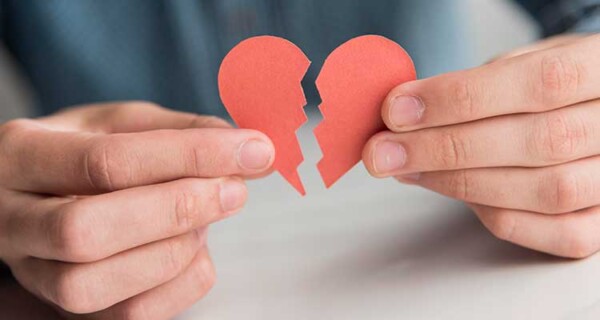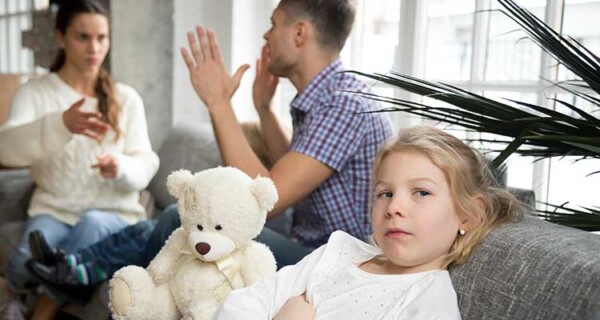If we look at it through the lens of evolutionary purpose, jealousy has played as much a central role as love. All of us must have felt possessed by this green monster at some point in our lives. Whether you find your girlfriend complimenting her male best friend on how he transformed into a hunk, or you spot your husband (or boyfriend) scrolling down the profile of one of the girls from your gang and see the gleam in his eyes – you surely feel that pang of rage and sometimes fear, and begin to wonder if things are at stake.
Rooted in evolution
Table of Contents
Jealousy, very much like all other primitive emotions (joy, sadness, love, liking and disliking) developed as a response to ecological challenges faced by our ancestors. In a way it helped to curb infidelity between partners/parents so that their children were taken care of and their reproductive success was guaranteed. But then with the evolution of society, culture and political identity, this emotion too changed its form into the likes of more complex emotions like humility or nostalgia. And just like men and women feel all emotions differently, jealousy too is no exception.
We have to understand the nature of contribution that each parent makes towards reproduction – which is different. Therefore the kind of jealousy that men feel is more sexual in its nature.

Several researches and surveys claim that men would be more upset with their wives or girlfriends sleeping with someone and having no emotional attachment to those people, than the opposite.
Whereas for women, romantic jealousy is way more intricate and can be loosely tagged under emotional jealousy. Say, for a woman it is way more difficult to deal with emotional infidelity than sexual infidelity, not that the latter isn’t a disaster at all. But the idea of infidelity is more psychological for a woman than a man.
Related Reading: 9 Activities To Rebuild Trust In A Relationship – As Recommended By A Couples Counselor
The gender gap
Though genetics may not have an actual role to play, there’s an evolutionary significance to which why men and women process infidelity differently. For a man it is difficult to provide for children if they are genetically distant, far worse if he is unsure if the children are his at all. Therefore, he has to ensure that the progeny is a product of his reproductive success. That makes him more prone to sexual jealousy.
“Understanding why we feel jealous can make it easier to manage.”
For a woman, she knows that she has to bear the child herself; her contribution to the process of childbirth is more ensuring of the fact that no matter what, the child is hers. However, if the father isn’t there to provide for the child and is emotionally unavailable, she has to worry about the resources for the successful rearing of the child. Therefore the kind of jealousy she may feel is more to do with emotional attachment and availability.

Jealousy, therefore, is a healthy response to ensure loyalty and check the infiltration of external elements to preserve and maintain a healthy relationship.
However, as we progress over time, the ideas of institutionalised cohabitation and love are also changing. In our time and age, we have more and more people settling for options like open relationships, polygamy and living-in. The divorce rates are higher and single parenting is way more acceptable and sometimes cooler. Therefore the ideas of jealousy are also changing with time.
Related Reading: These 15 Things Will Make Your Love Last Forever
Let it out
Of course it still appears as an inherited instinct that allows a man or a woman to question their loyalty towards each other, and in certain situations can become the seed for disaster.
However, it is important to understand that like any other negative emotion that has the capacity to pull down a relationship under stress, we must voice our jealousy too.
For long, we have considered jealousy as a secret emotion, unlike anger or sadness that we do express. But one of the ways by which couples can mitigate and channel their personal jealousy, is by telling the other person how they feel.

For the problem with jealousy is, it grows. It grows into nothing but insecurity and doubt and that may turn into an obsessive/compulsive behaviour later, which in any case will cause devastation to your relationship. One must talk about it the moment one feels. Another positive after effect of talking is, it shows you how rational you are when you are feeling that jealousy: is it at all reason based, evidence based? Or is it that you feel possessed that moment when you let the green monster conquer your mind? In all cases, it’s a valid reality check. So, talk today if you haven’t done so far!
Related reading: How jealousy killed the love which no conspiracy or distance could

FAQs
1. Why might men and women experience jealousy differently?
Biological factors, such as evolutionary roles, combined with social conditioning, can cause men and women to process jealousy in distinct ways. For example, evolutionary theories suggest that men might feel jealousy over potential infidelity, while women might feel it over emotional bonds that threaten their relationship stability.
2. Do men feel jealousy more intensely than women, or vice versa?
Intensity varies more by individual personality than by gender. However, men and women may express jealousy differently: men might externalize it through anger, while women may internalize it and feel more sadness or insecurity.
3. Can jealousy differ between romantic and platonic relationships?
Yes, both men and women can feel jealous in platonic friendships if they feel replaced or neglected. In romantic relationships, jealousy might be more intense, as it taps into emotional and physical insecurities.
Final Thoughts
Jealousy is a natural emotion, but understanding why we feel it and recognizing the factors that shape our reactions can help us manage it more effectively. Men and women may experience jealousy differently due to a blend of biological, emotional, and social influences. By acknowledging these differences, partners can develop empathy, communicate openly, and create a space where jealousy doesn’t hinder, but rather strengthens, the relationship.
If jealousy is affecting your relationship, consider seeking guidance from our counselor who can help you and your partner understand each other’s perspectives and work through insecurities together.
7 Ways To Rebuild Trust In Your Relationship With Your Wife After Her Affair
Your contribution does not constitute a charitable donation. It will allow Bonobology to continue bringing you new and up-to-date information in our pursuit of helping anyone in the world to learn how to do anything.























Yes, agree with you – jealousy is not something that we are born with. It is something we acquire.